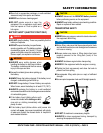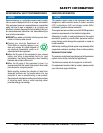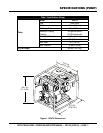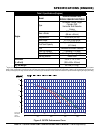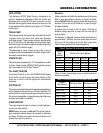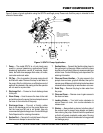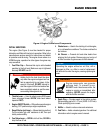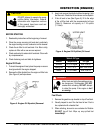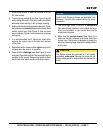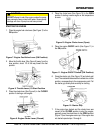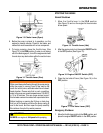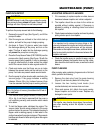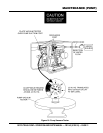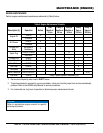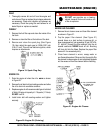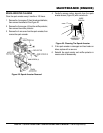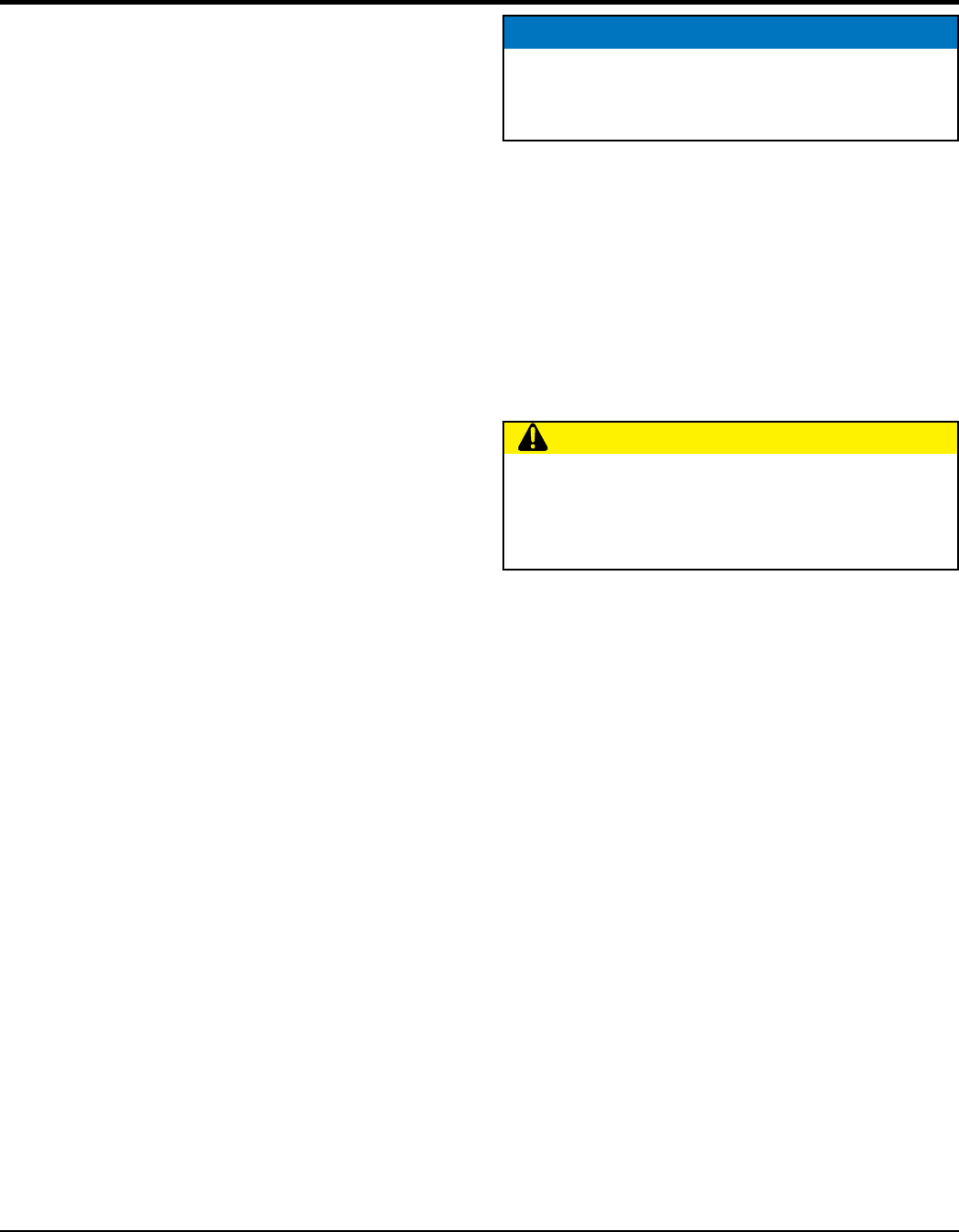
QP4TH TRASH PUMP • OPERATION AND PARTS MANUAL — REV. #3 (01/29/14) — PAGE 17
7. The discharge hose is usually a collapsible
(thin-walled) hose, however if a thin-walled discharge
hose is not available, a rigid suction hose can be
substituted in its place.
8. Make sure the suction strainer (See Figure 3) is
clean and securely attached to the water end of the
suction hose. The strainer is designed to protect the
pump by preventing large objects from being pulled in
to the pump.
1. Place pump as near to water as possible, on a firm
flat, level surface.
2. To prime pump, remove fill cap (See Figure 3) and fill
pump casing with water. If the pump casing is not filled
with water before starting, it will not begin pumping.
3. Attach suction and discharge hoses to the pump. Check
that all hoses are securely attached to the pump. Make
certain suction hose (See Figure 3) does not have
any air leakage. Tighten hose clamps and couplings
as required.
4. It is recommended that 2 clamps be used when
securing the suction hose to the inlet side (suction)
of the pump.
5. Remember suction hoses must be rigid enough not to
collapse when the pump is in operation.
6. Check that the discharge hose (See Figure 3) is not
restricted. Place hose so that it lays as straight as it is
possible on the ground. Remove any twists or sharp
bends from hose which may block the flow of water.
NOTICE
Suction and discharge hoses are available from
Multiquip. Contact your nearest dealer for more
information.
CAUTION
The strainer should be positioned so it will remain
completely under water. Running the pump with the
strainer above water for long periods can damage the
pump.
SETUP



